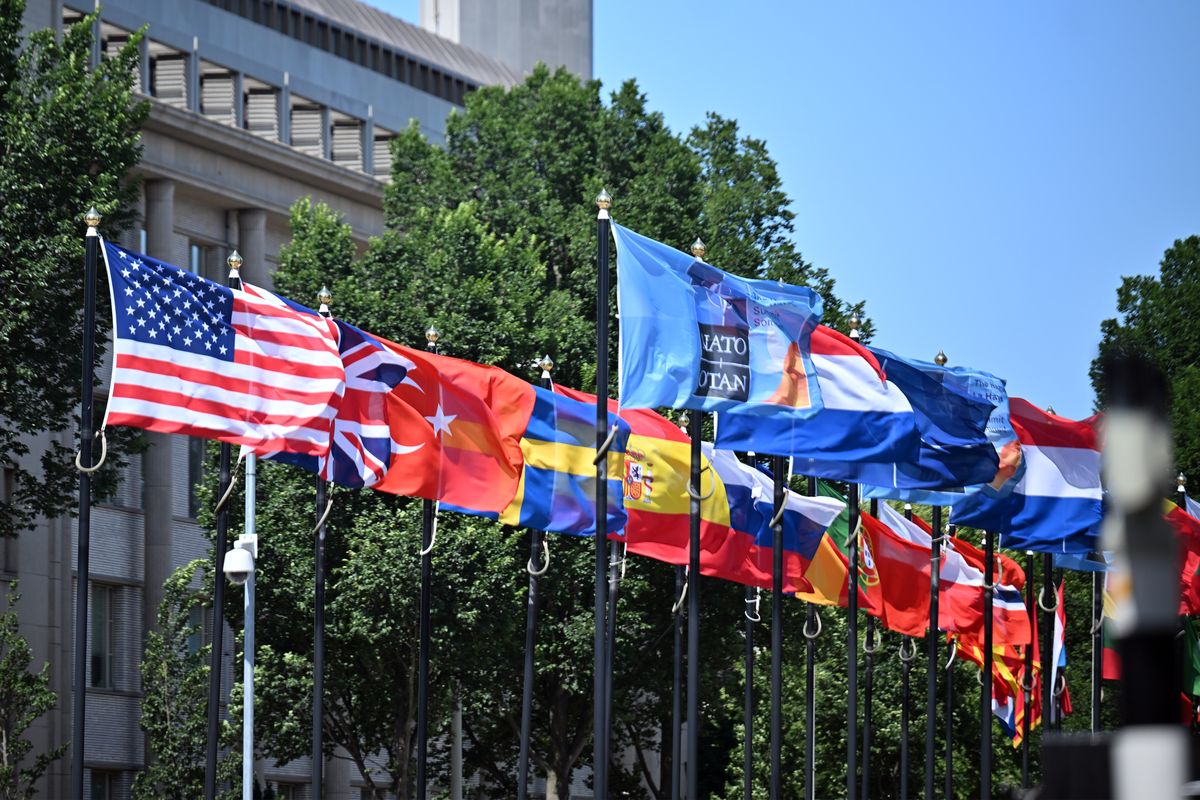America’s commitment to European security is up in the air under the Trump Administration, raising the question, will Europeans have to take more responsibility for their own defense?
Europe must “take our fate into our own hands,” said German Chancellor Angela Merkel after President Donald Trump’s visit to Europe last month.
Trump, at a NATO heads of state meeting on May 25, noticeably did not reaffirm America’s commitment to Article 5, NATO’s collective defense clause that says an attack on one is an attack on all. His cozying up to Russian President Vladimir Putin and allegations of Russia’s interference in the U.S. presidential election to help get Trump elected do not sit well with the Europeans. As Russia’s western neighbors, they are acutely aware of the damage Russian meddling can cause in places like Ukraine and the Baltics.
“It was no coincidence that Trump’s failed trip to Europe was followed by Merkel saying that Germany needs to expand its cooperation with China in these uncertain times,” former Acting and Deputy CIA Director Michael Morell told The Cipher Brief.
On Friday, Germany and China announced a pact to combat climate change, following Trump’s proclamation on June 1 that he will withdraw the U.S. from the Paris climate accord – or try to completely renegotiate the agreement, a feat unlikely to succeed.
“Germany and France, in particular, will need to play a central role in a European defense system that is able to make decisions and act potentially without the United States,” said Josef Braml, the German Council on Foreign Relations’ U.S. expert.
But some say that this drive for a stronger European defense apparatus, more detached from the United States, started long before Trump.
Since the Cold War ended, there has been less and less tolerance for America’s unique role as beneficent hegemon, said Thomas Wright, Director of the Brookings Center on the United States and Europe. Obama started this in earnest, he said, and Trump is just the “crasser, nastier version of where we’ve been heading for some time.”
The U.S. stepped into Europe in the mid-20th century to help rebuild the war-torn continent – most notably with the Marshall Plan that gave $13 billion to finance Europe’s economic recovery between 1948 and 1951.
But by the end of the Cold War in 1990, Europeans and Americans should have been asking, “why should the U.S. stay [in Europe]?” Gérard Araud, France’s Ambassador to the U.S., said at a recent Brookings event with Wright. That conversation never happened, Araud explained, with the conflicts in the Balkans and the Clinton Administration’s involvement there.
“We are at the point [now] that we have this conversation,” said Araud, adding that it started with Trump’s predecessor, President Barack Obama.
Three years ago, before Trump was even a blip on the political scene, Germany, France, the UK, and all other NATO allies agreed to increase defense spending, setting the two percent of GDP target that Trump now so frequently brings up.
Trump’s rhetoric on Europeans spending more on defense – or else – may be nudging Europeans in that direction, but the plan was agreed to without Trump – just like the Europeans’ talks of creating a European Army, an idea that has ebbed and flowed over the past seven decades in what is now known as the European Union (EU).
The Europeans are taking a step toward this on Wednesday, with the European Commission outlining plans for a common European defense fund to cover procurement and research. With the UK likely leaving the bloc, hopes of deeper EU military cooperation are again appearing.
“The UK opposes the notion of Europe's strategic autonomy and considers NATO and a close relationship with the United States, particularly on intelligence and naval matters, to be at the core of its security strategy,” Sir Michael Leigh told The Cipher Brief.
Leigh, previously the European Commission’s Director-General for EU Enlargement, added, “This has not changed since the Trump Administration took office, despite worries about intelligence leaks from the White House… Overall, the UK continues to count on the alliance with the United States.”
The UK, last June, voted to leave the EU in its historic “Brexit” decision. On Thursday, Britons will vote in general elections that could change the course of Brexit negotiations between the UK and EU. Independent of the electoral result, “the UK will also want to retain a strong security relationship with Europe,” said former member of the British Intelligence Service (MI6) Nigel Inkster, while maintaining its “deeply entrenched and institutionalized” security and intelligence collaboration with the U.S. through the Five Eyes intelligence alliance – which includes Australia, Canada, and New Zealand as well.
Although no other European nation has this kind of historic security tie with the United States, the two regions are “stuck with each other,” said Richard Boucher, a former assistant secretary of state and Deputy Secretary-General of the Organization of Economic Cooperation and Development (OECD).
“In the end, the U.S. and Europe are bound together, not just in institutions but in interests and fate… Whether we like it or not, we will find each other back together at every turn and every issue.”
—
View our expert commentary on this topic:
America First? Why the U.S. Can’t Go It Alone – And Neither Can Europe, by Ambassador Richard Boucher, former Assistant Secretary of State for South and Central Asia
Never Waste a Good Crisis: Forcing Europe to Stand Up for Itself, by Josef Braml, a Fellow at the German Council on Foreign Relations
Kaitlin Lavinder is a reporter at The Cipher Brief. Follow her on Twitter @KaitLavinder.













